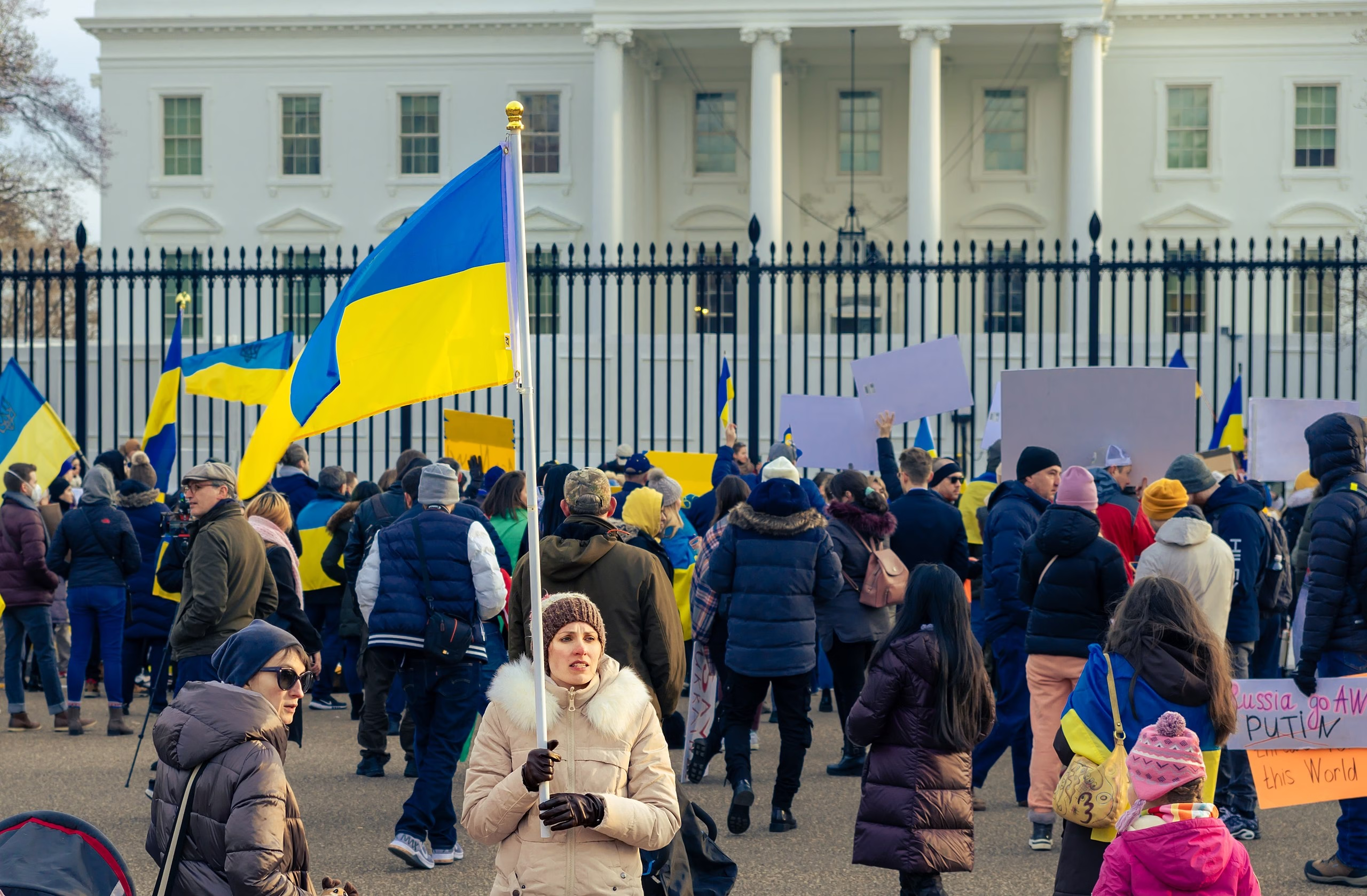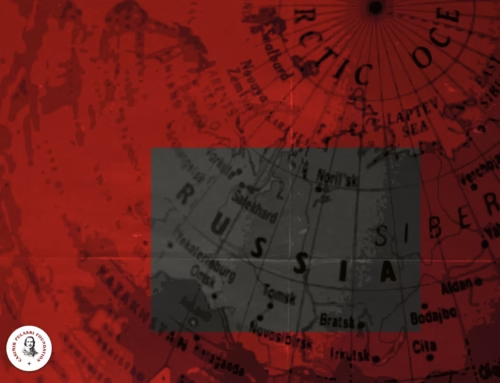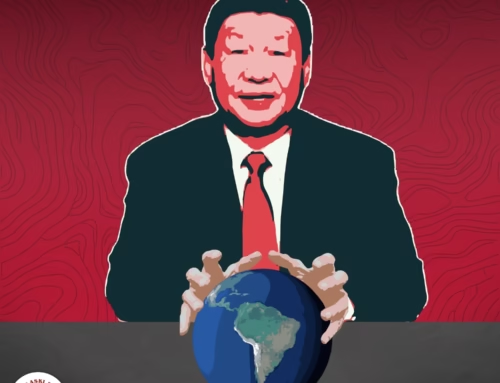Ukrainian_
Autor foto: Domena publiczna

Growing American Scepticism – A Dangerous Trend in Unison with Russian Strategy
17 października, 2023


Ukrainian_
Autor foto: Domena publiczna
Growing American Scepticism – A Dangerous Trend in Unison with Russian Strategy
Autor: Paweł Witczak
Opublikowano: 17 października, 2023
After eighteen months of the Russian full-scale aggression on the independent state of Ukraine and in the midst of the Ukrainian counter-offensive, there are no signs of the war coming to an end. The Ukrainian state suffered great damages in infrastructure (estimated 138 billion dollars as of January 2023),[i] and its troops, which continue the battlefield effort in the current led operations, require constant reinforcement.[ii] Therefore, the country’s need for Western financial and military support, particularly that of the United States of America, remains extremely high. The latest polls and reports suggest that the American public opinion becomes more sceptical to the idea of the aid increase for Ukraine. The reasons why this trend can be important in the coming months and why it dangerously fits the Russian long-drawn strategy, will be outlined in the next paragraphs of this paper.
According to the CNN poll published in the early days of August, the majority of Americans oppose Congress authorising additional funding to support Ukraine in its war with Russia.[iii] Another report presented by Gallup in late June indicates that the number of American citizens, who are willing to support the effort in helping Ukraine regain all of its lost territory (even if that means a more prolonged conflict), has experienced a slight decline in comparison to August 2022, when Gallup first asked the question.[iv]
These trends were already observed at the turn of the year, after American midterm elections, when the Republican Party had secured control over the House of Representatives. Although some of the running Republican candidates, who are considered to constitute the isolationist wing of the party, lost their bids in November 2022, the tendency of growing scepticism towards the support for Ukraine was observed i.e. in remarks given by Kevin McCarthy, the Speaker of the House of Representatives (‘no blank check’ for Ukraine).[v]
Then, Raphael S. Cohen and Gian Gentile from RAND Corporation argued that those tendencies are not dangerous due to American administration’s long history in supporting unpopular wars.[vi] This might no longer be true. First of all, the coming presidential elections mean that the contesting candidates have to take this growing American scepticism into consideration, if they want to increase their chances of winning. Second of all, Cohen and Gentile were referring to wars in Korea, Vietnam, Iraq and Afghanistan – in all of which American soldiers were actually taking part. The current war in Ukraine is different and cutting the support for the Ukrainian government, in the perception of American voter, would not pose a threat to the US soldiers’ life and national security.
In the US election campaign, there is a much more evident enemy on the international scene than Russia. Seven out of eight Republican candidates who participated in the televised Milwaukee debate on the 23rd of August accentuated the confrontation with China and one of them, Vivek Ramaswamy, criticised US aid to help Ukraine repel Russia’s invasion as driving Moscow ‘further into China’s arms’.[vii] Considering that the majority of the GOP candidates are doubling down on their stances toward economic and technological competition with China to leverage political support,[viii] the situation, in which Ukrainian-Russian war becomes a second- or third-plan event in the American administration’s agenda, is in the realm of strong possibility.
Similarly to the attrition warfare adopted by the Russian command on the battlefield[ix] – their strategy on the issue of financial and military aid concentrates on the growing fatigue of Western societies. Moreover, Americans increasingly say that the US administration should prioritise domestic affairs over the activity on the international stage.[x] The coming elections can only deepen this inclination.
This will be a challenging task, nevertheless the advocacy of the Ukrainian cause is needed now more than ever before. As US Secretary of Defence Lloyd Austin said in June 2023, the war effort in this conflict ‘(…) is a marathon and not a sprint’. He underlined that the United States of America are in it for ‘the long haul’.[xi] Hopefully, these words will not fade away until the international order in Eastern Europe is restored.
Author: Paweł Witczak, external contributor
[i] The total amount of damage caused to Ukraine’s infrastructure due to the war has increased to almost $138 billion, Kyiv School of Economics, 24th January 2023, https://kse.ua/about-the-school/news/the-total-amount-of-damage-caused-to-ukraine-s-infrastructure-due-to-the-war-has-increased-to-almost-138-billion/
[ii] War in Ukraine Weekly Update – The Road to Tokmak (02.09-08.09.2023), Sebastian Czub, Casimir Pulaski Foundation, 8th of September 2023, https://pulaski.pl/war-in-ukraine-weekly-update-the-road-to-tokmak-02-09-09-09-2023/
[iii] CNN Poll: Majority of Americans oppose more US aid for Ukraine in war with Russia, Jennifer Agiesta, CNN, 4th of August 2023, https://edition.cnn.com/2023/08/04/politics/cnn-poll-ukraine
[iv] Most Americans Still Support Ukraine War Effort, Mohamed Younis, Gallup, Inc., 29th of June 2023, https://news.gallup.com/poll/508037/americans-support-ukraine-war-effort
[v] McCarthy: No ‘blank check’ for Ukraine if GOP wins majority, Farnoush Amiri and Kevin Freking, Associated Press, 19th of October 2022, https://apnews.com/article/russia-ukraine-donald-trump-humanitarian-assistance-congress-c47a255738cd13576aa4d238ec076f4a
[vi] The Myth of America’s Ukraine Fatigue, Raphael S. Cohen and Gian Gentile, Foreign Policy Magazine, 2nd of January 2023, https://foreignpolicy.com/2023/01/02/ukraine-russia-war-fatigue-myth-us-public-opinion/
[vii] China on the agenda: 2024 candidates fret over how to deal with Beijing, Robert Tait, The Guardian, 5th of September 2023, https://www.theguardian.com/world/2023/sep/05/china-beijing-biden-us-foreign-policy
[viii] U.S.-China 'de-risking’ will face stress test in election season, Eleanor Shiori Hughes, The Japan Times, 1st of September 2023, https://www.japantimes.co.jp/commentary/2023/09/01/world/derisking-china-us-elections/
[ix] Soaring Death Toll Gives Grim Insight Into Russian Tactics, Helene Cooper, Eric Schmitt, Thomas Gibbons-Neff, The New York Times, 2nd of February 2023, https://www.nytimes.com/2023/02/02/us/politics/ukraine-russia-casualties.html ; Ukraine’s Manpower Requirements Reaching a Critical Threshold, Hlib Parfonov, The Jamestown Foundation, 26th of July, 2023, https://jamestown.org/program/ukraines-personnel-needs-reaching-a-critical-threshold/ ; Zelensky signs decree on mass review of military medics’ decisions, Dinara Khalilova and The Kyiv Independent news desk, The Kyiv Independent, 12th of September 2023, https://kyivindependent.com/zelensky-signs-decree-on-mass-review-of-military-medicals-decisions/
[x] Americans Hold Positive Feelings Toward NATO and Ukraine, See Russia as an Enemy, Jacob Poushter, Moira Fagan, Sneha Gubbala and Jordan Lippert, Pew Research Center, 10th of May 2023, https://www.pewresearch.org/global/2023/05/10/americans-hold-positive-feelings-toward-nato-and-ukraine-see-russia-as-an-enemy/
[xi] Austin: Ukraine war ‘a marathon, and not a sprint’, Matt Berg, Politico, 15th of June 2023, https://www.politico.com/news/2023/06/15/ukraine-war-marathon-austin-00102111





